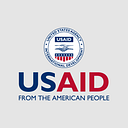Making Waves
Stories from women in the seafood industry in Southeast Asia
Elsye Takarendehang is a small-scale fisher in Batuputih Atas, a small coastal village in North Sulawesi, Indonesia. She lives and works along the coastline of the Sulu-Sulawesi Seascape, part of the global center of marine biodiversity called the Coral Triangle and one of the most diverse and productive marine ecosystems on the planet.
A 48-year-old mother of two, Elsye started fishing in 2004 after she married a local fisherman. Elsye uses a small boat known as a ketinting to fish up to four times a week. She is often on her boat from sunrise until well after sunset, fishing seasonally to catch grouper, bream, and snapper.
Women like Elsye make up more than half of the workforce involved in seafood harvesting, processing, marketing, and distribution within the Indo-Pacific region, according to USAID estimates.
Despite their contributions to active fishing industries around the region, Southeast Asian women are often under-represented or absent in fisheries management, including decision-making processes. To increase their participation and power, USAID is creating spaces for women to advocate for their interests and ideas while advancing sustainability in fishing supply chains: a regional Southeast Asia Small-Scale Fishery Hub and a Gender Equality Hub.
Women working on vessels at sea
Fishing is Elsye’s passion. She sees it as not just a livelihood but also an adventure.
“There are two things that get me excited about fishing,” she said. “The first is when I have a big catch, because there’s this feeling of achievement and empowerment. Second, I always learn new skills while I’m out on the water, especially how to survive and catch fish through bad weather, including strong winds, high tides, and big waves.”
Elsye posts her daily catch on her Facebook profile, where potential buyers can reach out to her. Shortly afterward, she receives confirmation from her buyers, who pick up the fish that same day.
To help women like Elsye register formally as fishers and reap the benefits of formal membership in the industry, including access to government programs, USAID helped Elsye and other women register formally as fishers.
“I can access several programs and benefits with the [official registration] card, including my ketinting boat, capacity building programs, health insurance, and micro-credit loans,” said Elsye.
Women developing policy to improve the industry
Meanwhile, on the island province of Tawi-Tawi in the Philippines, Haidisheena Allama serves as chief legal officer of the Ministry of Agriculture, Fisheries and Agrarian Reform in the Bangsamoro Autonomous Region of Muslim Mindanao.
She is one of the few lawyers in the area working to promote sustainable agriculture and fishery development, ensure equitable land distribution, and secure tenure rights for fishers.
“Our office serves and empowers fishers,” said Haidisheema. “If our partners — such as law enforcement officers — discover illegal fishing occurring, they notify our office to request the help that they need from us, including legal assistance for fisherfolk or prosecution support.”
Haidisheena and her team’s legal assistance prevents marine resources from being stolen — including by foreign fishing fleets operating illegally — so that fish stocks are safeguarded for the benefit of local families and the Filipino people.
USAID’s Gender Equality Hub, which is expected to be launched next year, will allow women like Haidisheena to advocate for policies to protect the rights of women fishers. Through the Hub, there will be regular events such as meetings, conferences, and workshops that will allow women to exchange knowledge and experience and form a collective voice for policy advocacy.
Integrating more female fishers into fisheries management and policy development processes will lead to policies and programs that incorporate their needs and concerns. Only by integrating the voices of traditionally underrepresented groups, can we build a more equitable and inclusive fisheries sector and holistically address threats to marine biodiversity across the region.
Women leading seafood processing businesses
Charrelyn Pacabis is a successful businesswoman from Masinloc, a municipality in Zambales province along the coastline of the Philippines.
Like many other women in her area, Charrelyn sells fish through retail and wholesale markets. She also provides boat captains with small loans for fishing operations and runs a small livestock operation.
Charrelyn started her business 20 years ago to generate more income for the household. Her business thrived and has grown over the years. Today, her husband and children are all involved in her business operations.
“When I started the business, I faced many challenges, from not having enough capital to competing roles I had to play as a businesswoman, wife, and mother,” explained Charrelyn. “As a businesswoman, I must be strong to survive and succeed. This way, people will take me seriously.”
Through the second USAID hub, the Southeast Asia-Small Scale Fishers Hub, which was soft-launched earlier this month, Charrelyn and others can participate in women-led business training as well as market-matching — a networking platform where fishers can meet with buyers and potential partners, including business investors, developers, marketers, and distributors.
Building an equitable and inclusive future
USAID works with women like Elsye, Haidisheena, and Charrelyn across the Indo-Pacific region to engage women in the fishing industry as active agents of change to support sustainable fishing practices that help counter illegal, unreported, and unregulated fishing; advance fair labor and human welfare within international seafood supply chains; and promote marine biodiversity conservation.
With the Gender Equality Hub and the Southeast Asia-Small Scale Fishers Hub, these women will have the opportunity to contribute, either as resources or participants, at regular events such as meetings and workshops.
Together, we will work toward a more equitable and inclusive future in the seafood industry in Southeast Asia.
About the Author
Ariani Soejoeti is the Senior Communications and Outreach Specialist for the USAID Sustainable Fish Asia Technical Support project.

